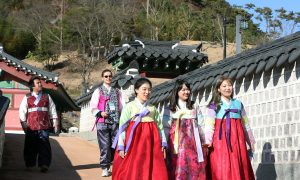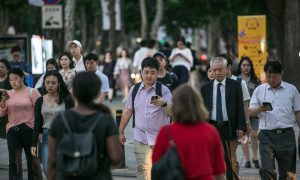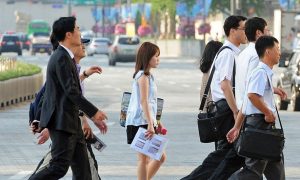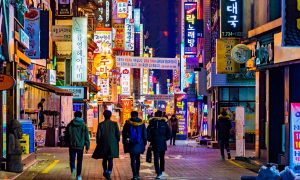

With the steady growth of the Korean economy and the acceleration of internationalization, more and more foreigners are choosing toImmigration to Korea. And in allimmigrantsIn the mode ofWork visas andinvestment immigrationare the two most popular routes. But which one is better for long-term living? This article will analyze both in detailApplication Requirements, Benefits, Challenges, and Suitable Candidatesthat help you make the best decisions.
One,Korea Work Visa: For skilled people and employees
1. Common types of work visas
South Korea offers a variety of work visas, the most popular of which include:
- E-2 (English Teacher Visa): For foreign English teachers, an employment contract from a Korean school or organization is required.
- E-7 (Specific Skills Work Visa): For highly skilled people in IT, engineering, medical, finance, etc. Employer sponsorship is required.
- D-10 (job-seeker visa): Foreigners are permitted to seek employment in Korea for a period of time, generally six months, with the possibility of applying for an extension.
- H-1 (Working Holiday Visa): Applies to young people under the age of 30 and allows short-term work and travel in Korea.
2. Conditions and difficulties of application
- needemployer sponsoredand some occupations have high requirements for education and work experience.
- Korea is more friendly to certain industries (e.g. finance, IT, high-end manufacturing) but more restrictive to general laborers.
- E-7 work visa holders inAfter 5 years of continuous serviceCan apply for F-2 long-term residency and further apply for F-5 permanent residency (green card).
3. Suitable for the population
- Expatriates with specialized skills or work experience.
- Those who wish to work in Korea for a long time and want to apply for permanent residence gradually.
- A person who is employed by a Korean company and is willing to be managed by the employer.
4. Strengths and challenges
✅ dominance: Stable income, legal employment, and cumulative time spent in the country can be used to apply for permanent residence.
❌ challenge: Job changes may affect visas, visa renewals are subject to employer influence, and some industries are more restrictive.
Two,Korea Investment Immigration: For Entrepreneurs and High Net Worth Individuals
1. investment immigrationVisa Type
- D-8 (Business Investment Visa): For those who set up a company or invest in a business in Korea, the minimum investment amount is about100 million won (about $75,000)The
- F-2 (Investment Residence Visa): Investors who invest more than 100 million won and meet certain conditions can apply for long-term residence.
- F-5 (Permanent Resident Visa): Investors who have held a D-8 visa for more than five consecutive years and meet certain tax and employment requirements may apply for an F-5 green card.
2. Conditions and difficulties of application
- Investment requiredSubstantial amount of fundsand prove that the investment is legal and contributes to the Korean economy.
- Some sectors are more affected by policies, such as real estate investmentNo longer includedinvestment immigrationcategoryThe
- Proof of stable company operations is required, otherwise renewal of the D-8 visa may be at risk.
3. Suitable for the population
- Those who have some financial strength and are willing to start a business or invest in Korea.
- Those who wish to obtain long-term residency more quickly and do not want to be bound by their employer.
- Those who have international business or local Korean business resources and want to expand the market.
4. Strengths and challenges
✅ dominance: Higher degree of freedom, no need to rely on an employer, and a clearer path to permanent residence.
❌ challenge: High investment thresholds, business operations need to comply with policies, and there are requirements for business experience.
III. Comparative analysis of the two approaches
| factor of comparison | Work visas (E-7, E-2, etc.) | Immigrant investors (D-8, F-2, etc.) |
|---|---|---|
| population (esp. of a group of people) | Professionals, technicians, recruits | Entrepreneurs, High Net Worth Individuals |
| Acquisition of the right of abode | You need to have worked continuously for at least 5 years before you can apply for permanent residence. | Faster access to long-term residence through investment |
| economic cost | Low, only need to meet working conditions | High, requires at least 100 million won investment |
| Freedom of work | Subject to employer, change of job may require change of visa | No employer restrictions, but need to ensure investment compliance |
| Difficulty in renewing a visa | Dependent on employers and may be affected by labor market policies | Need to maintain business operations, otherwise the visa may be canceled |
| Possibility of obtaining permanent residence | Long-term employment required and eligible | F-5 permanent residence after 5 years of operation |
| Is it suitable for long term living? | Suitable for those who wish to develop professionally | Suitable for those who have the ability to invest and wish to operate independently |
IV. How to choose the best immigration method for you?
✅ Best case scenario for choosing a work visa
- You have professional skills or education and want to work steadily in Korea.
- You don't want to take the risk of a high investment, but rather want to gain long-term residency by accumulating work experience.
- You want to enter a large Korean or multinational company with a clear career development plan.
✅ Best case scenario for choosing an immigrant investor
- You have a certain amount of capital and wish to obtain Korean residency by starting a business or making an investment.
- You don't want to be restricted by your employer and prefer to conduct your business independently.
- You want to obtain long-term residency or permanent residence status more quickly than waiting years to gain work experience.
V. Conclusion: which is better for long-term residence?
- If you areYoung Professionalswho wish to obtain permanent residence through work.E-7 VisaIt's a good choice, but it's vital to keep a steady job and have career progression.
- If you areEntrepreneur or investorwho wish to obtain permanent residence more quickly and have some financial support.D-8 Immigrant InvestorIt will suit you better.
- In the long run, investment migrants have more freedom, while work visas are more stable but more restrictive.






